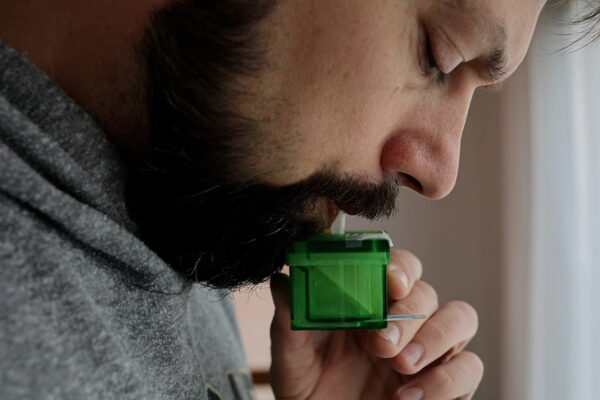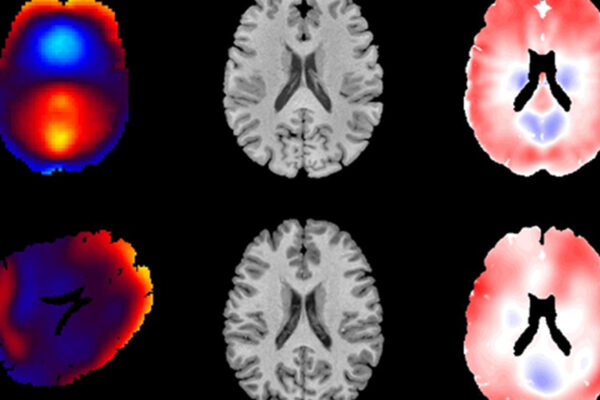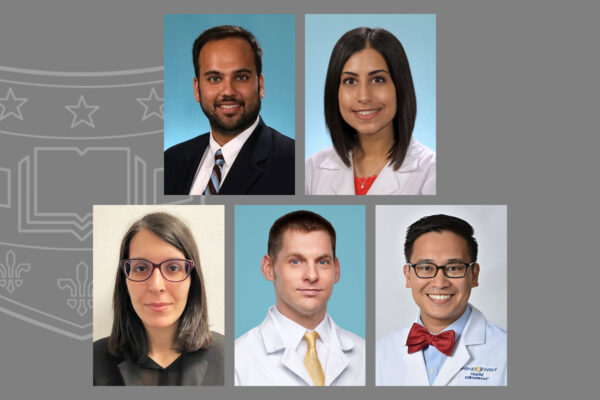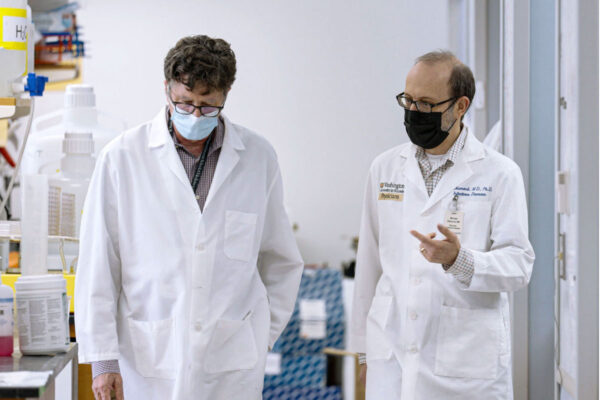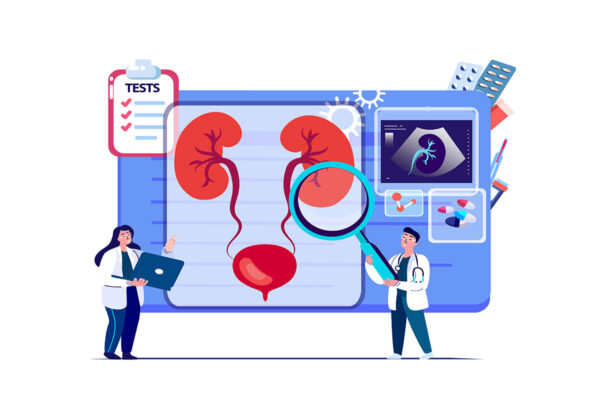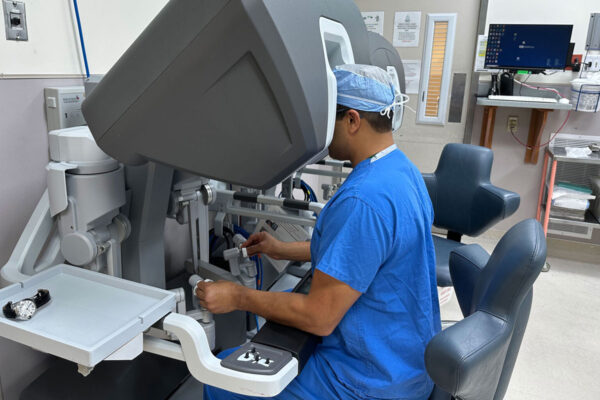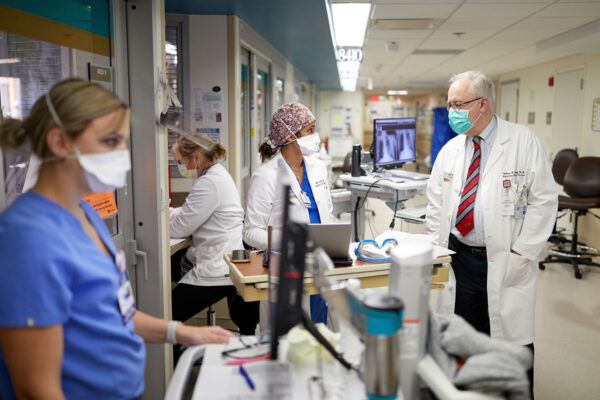Payne named to National Academy of Medicine committee
Philip R.O. Payne, at the School of Medicine, has joined the steering committee of a National Academy of Medicine working group to draft a code of conduct for artificial intelligence in health, medical care and health research.
Scientists develop breath test that rapidly detects COVID-19 virus
Scientists at Washington University have developed a breath test that quickly identifies those who are infected with the virus that causes COVID-19. The device requires only one or two breaths and provides results in less than a minute.
A low-cost potential therapy for spinal cord injuries
Ismael Seáñez at the McKelvey School of Engineering is developing a new method to treat spinal cord injuries that uses a low-tech electrode array that effectively stimulates muscles in the legs in people with spinal cord injuries.
Brain movement measured for clues to prevent, reduce injury
Philip Bayly and Jordan Escarcega at the McKelvey School of Engineering led a multi-institutional team to compare how the human brain deforms in response to movement using two types of magnetic resonance imaging. Such deformations are key to understanding traumatic brain injury but are challenging to study since the brain is hidden inside the skull.
Five physician-scientists named Dean’s Scholars
The Division of Physician-Scientists at the School of Medicine has named its 2023 Dean’s Scholars. The awardees will receive up to two years of financial support and mentorship, as well as dedicated lab time to conduct scientific research.
Curiel, Diamond receive innovation award
David T. Curiel, MD, PhD, and Michael S. Diamond, MD, PhD, both of the School of Medicine, have received the Chancellor’s Award for Innovation and Entrepreneurship for their development of a nasal vaccine against the virus that causes COVID-19.
Kidney tissue atlas serves as blueprint for understanding kidney injury, disease
Researchers at the School of Medicine helped lead a major study, funded by the National Institutes of Health (NIH), that uncovered rich cellular and molecular diversity in healthy and diseased kidneys, creating a kidney tissue atlas that will help further understanding of kidney injury and disease.
Portable, low-cost tech tracks uterine contractions
In a paper published in IEEE Transactions on Biomedical Circuits and Systems, researchers at Washington University describe a portable uterine-contraction tracker: a cheap-to-make, flexible electrode patch.
First robotic liver transplant in U.S. performed by Washington University surgeons
A surgical team from the School of Medicine recently performed the first robotic liver transplant in the U.S. in May at Barnes-Jewish Hospital.
Anti-inflammatory drugs did not speed COVID-19 recovery but prevented deaths
Two drugs commonly used to treat inflammatory diseases such as rheumatoid arthritis and psoriasis did not shorten recovery time for patients hospitalized with severe COVID-19 but did reduce the likelihood of death when compared with standard care alone, according to a study led by the School of Medicine.
Older Stories

